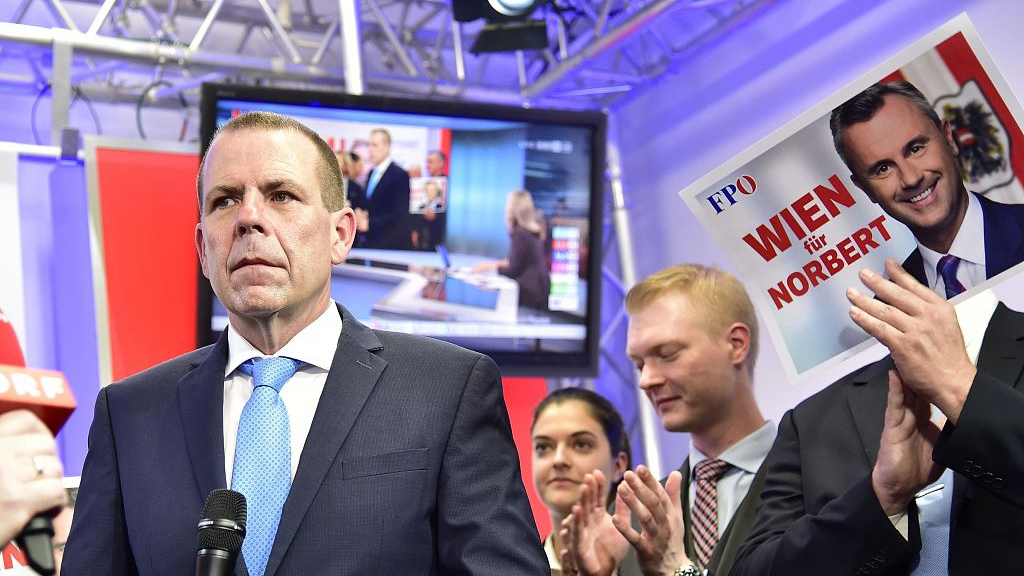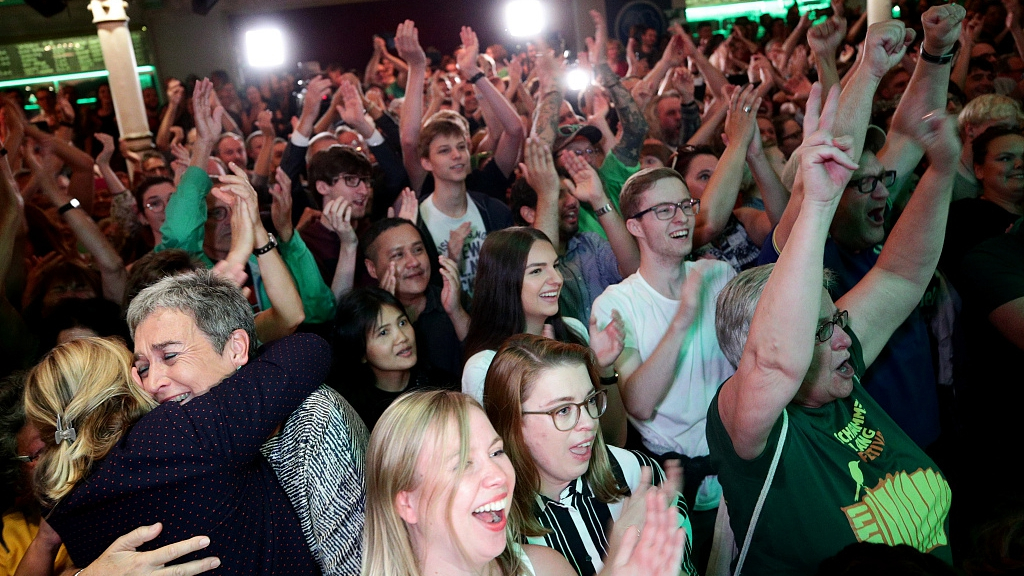02:04

Austria's conservative People's Party (OeVP) won big, as expected, in a snap election on Sunday, just four months after being ousted from power, while its former partner, the far-right Freedom Party (FPOe), saw its support plummet following a series of scandals.
The environmental Greens meanwhile rose from the ashes, not only to re-enter parliament but also possibly join the next coalition government, on the back of global calls for climate action.
The OeVP, led by its youthful head Sebastian Kurz, took 38.4 percent of votes, according to official preliminary results announced by the interior ministry late Sunday.
This was higher even than its result in the last election in 2017, when it took 31.5 percent, and represents a massive U-turn for a party that made history in May when Kurz's government was booted out of office in a no-confidence vote – a first for the country.
In distant second place came the Social Democrats (SPOe) with 21.5 percent, a historic low.

Freedom Party secretary general Harald Vilimsky reacts to exit polls at his party's headquarters in Vienna, Austria, September 29, 2019. /VCG Photo
Freedom Party secretary general Harald Vilimsky reacts to exit polls at his party's headquarters in Vienna, Austria, September 29, 2019. /VCG Photo
But the big story was the massive drop in support for the FPOe, which scored its worst result in over a decade at about 17.3 percent, almost nine points less than in 2017 and far below analysts' forecasts.
It was dodgy revelations about the FPOe's former leader Heinz-Christian Strache that led to the government's collapse in May. A secret video filmed two years earlier on the Spanish island of Ibiza showed him offering state contracts to a supposed Russian agent in exchange for help winning elections.
Strache resigned as vice-chancellor, the FPOe interior minister was sacked and the party quit the ruling coalition, leaving the OeVP in charge, until it succumbed to the no-confidence vote. Four months on, the so-called Ibiza scandal has continued to plague the FPOe, while new allegations of embezzling party funds surfaced against Strache days before the election.
The party's result on Sunday stands in stark contrast to 2017 when it rode a wave of anxiety over Europe's migrant crisis. This time around, climate action rather than secure borders topped the agenda in the run-up to the vote.
This clearly benefitted the Greens, who took a whopping 12.4 percent – matching their best ever result – despite failing two years ago to make the four-percent threshold to enter parliament. As results came in, the party gleefully tweeted thanks to their supporters with the hashtag #comeback.
The liberal NEOS also experienced their best ever result with 7.4 percent of votes.

Supporters of the Green Party celebrate after the close of polling stations in Vienna, Austria, September 29, 2019. /VCG Photo
Supporters of the Green Party celebrate after the close of polling stations in Vienna, Austria, September 29, 2019. /VCG Photo
However, a record one million absentee ballots – representing almost one sixth of eligible voters – still need to be counted. This will likely boost the final results of the Greens, the NEOS and the SPOe, while bringing the OeVP and FPOe's numbers down by one or two points.
Turnout, traditionally high in Austria, was expected to be around 75 percent. Final official results including absentee ballots will be announced on Thursday.
A total 6.4 million people were registered to vote, with voters eligible from the age of 16.
Green, red, blue or pink?
With the election results now in, the next phase will begin: that of building a coalition, since the OeVP alone will not have a majority in the 183-seat parliament.
A repeat of the alliance that ended disastrously four months ago looks unlikely, with the FPOe's leaders saying they planned to go into the opposition, following Sunday's results.
Another option is a so-called "grand coalition" with the SPOe, a common but often loathed option in the past, characterized by constant bickering and obstructionism.
Read more:
Austrian conservatives set for election win despite govt collapse
The Greens' impressive comeback has also now opened up the possibility of an OeVP-Green alliance, an alternative that had not previously been considered but is now mathematically feasible.
Ahead of the poll, there was much talk about a possible "turquoise-green-pink" coalition – named after the OeVP, Greens and NEOS' party colors. After Sunday's result, this variation seemed less likely.
Coalition negotiations in the small alpine nation could take weeks if not months.
(Top image: Supporters of the People's Party react as exit polls are announced at an election night party in Vienna, Austria, September 29, 2019. /VCG Photo)